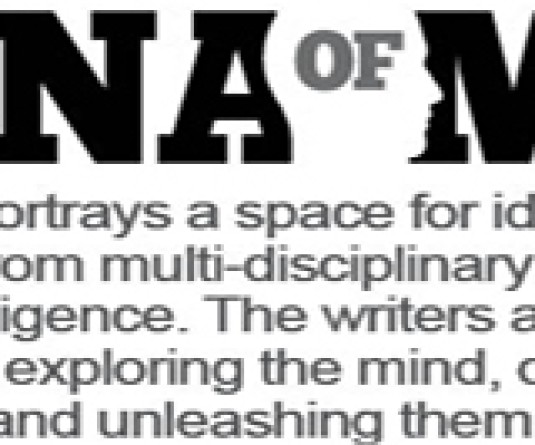
Ahel Vitsu
The month, being June and the season being the time for transplantation of rice plant, it is sad to see that many younger generation today are ignorant about the techniques of cultivating rice in the fields. Be it modern or the traditional methods, many youngsters in the present day, especially those living in towns and cities; have been missing the opportunity to learn these techniques, some have even shunned the opportunities. While some of the educated bureaucrats, realizing the importance of agriculture have started to teach their children by taking them to their fields or the fields of their relatives if they don’t own one especially during this summer break, which I believe is a good gesture.
The world is advancing rapidly and in trying to catch up or keep pace with it, are we, the Nagas in particular, leaving something behind? The good culture and practices that our forefathers have handed down to us, especially in terms of farming and agriculture, seemed to be slowly depleting and vanishing. We have witnessed the vast areas of fertile lands used for terrace cultivation drastically declining due to the migration of the people to the urban cities for reasons I leave it for you to explore. Many of their children now seldom go to their villages and have not experienced the practice of farming. Not only that, even some of the rural youth does not even have time to help their parents in the fields, talk about learning the art. Most of them will be engaged with their school/college projects, assignments and other related works, while some will be in front of their screens for most of the day. Judging by this present day scenario, one can see the future Nagas where majority will be completely dependent on external sources for our staple food along with others maybe.
Our forefathers used to say, “Wherever you go, whatever you do, learn the art of feeding yourself.” They have also spoken about the importance of cultivating rice and often say, “Rice is your lifeline, you should care for it.” Of course it is important that we learn some other skills and knowledge in the institutions, but apart from that, I believe this basic skill of learning to cultivate the food you eat is above all that. God forbids but if in case a calamity or a war broke out and the economy of our State crashes down, where do we get our food? Where do we get our provisions? And because of all these calamities, if the modern technology and machines that uses fuel and electricity were all destroyed, what shall we do? Obviously all of us, at this point of time, will have to come back to our roots and rely on our traditional spades, daos and our God given muscle strength to cultivate food to sustain ourselves as well as rebuild our economy. Take the case of the recent Covid-19 pandemic lockdown where we have seen many people living in urban areas who depended solely on the provisions provided in the market suffered from anxiety due to lack of supply, but many of those living in the rural areas stayed contented as they are the producer and consumer themselves. In fact, that was the time which opened many eyes on the importance of agriculture. Thomas Jefferson said, “Agriculture is the wisest pursuit, because it will in the end contribute most to real wealth, good morals and happiness.”Indeed it is the wisest pursuit, “the most healthful, most useful and most noble employment of men” as George Washington also pointed out. When I came across agriculture as the most healthy employment or so to say profession, it gave me another reason to believe that the high life expectancy of our forefathers may be because of this too. It is said that agriculture is the foundation of civilization and any stable economy. With agriculture, follows a market, city, stocks, banks, universities etc. A good number of learned writers have also written about the importance of small start-ups and entrepreneurship as a means to self-sustainability. It is high time that we start producing and exploit the resources that we have in abundance instead of depending on external sources. It is high time we should stimulate the younger generations in the field of agriculture-at least the basic- and be self-sustainable.
In this world of Drones, ITs, EVs, Bitcoins and what not, where everything seems to be rapidly changing and developing, it is good that we try and keep pace with the fast developing and changing surroundings. However, at the same time we should not shun away the good values and culture that our forefathers have given us. We should also not ignore the good methods and techniques that our forefathers have practiced to sustain themselves for many generations. In the ‘art of war’, the author Sun Tzu is of the opinion that, sometimes you need to retreat so that you will be able to rebuild your army and advance with a proper winning strategy. I believe it is time for us to retreat once and come back stronger with proper reinforcement so as to win this battle of self-sustainability. There is a quote which says, “Retreat and live to fight another day.” If we only keep chasing the fast paced development of the world, we might soon perish in the cruel hands of poverty and economic depression. So, why not we go back once and prepare ourselves with stronger gears of the tradition that our forefathers used to sustain themselves. Will it be too late now? Or will we be left far behind if we do that? What if we try to learn this skills while keeping up pace with the developing world? I agree that this profession might not be everyone’s cup of tea, but we do eat to survive and we get our food through cultivation. Thus, we need to learn at least the basic technique no matter the rank and files. Quoting our forefather’s saying again, “if you don’t know how to work, you should not eat.”
The writer is Asst Professor in Dept of Business Administration, St Joseph’s College (Autonomous), Jakhama.






